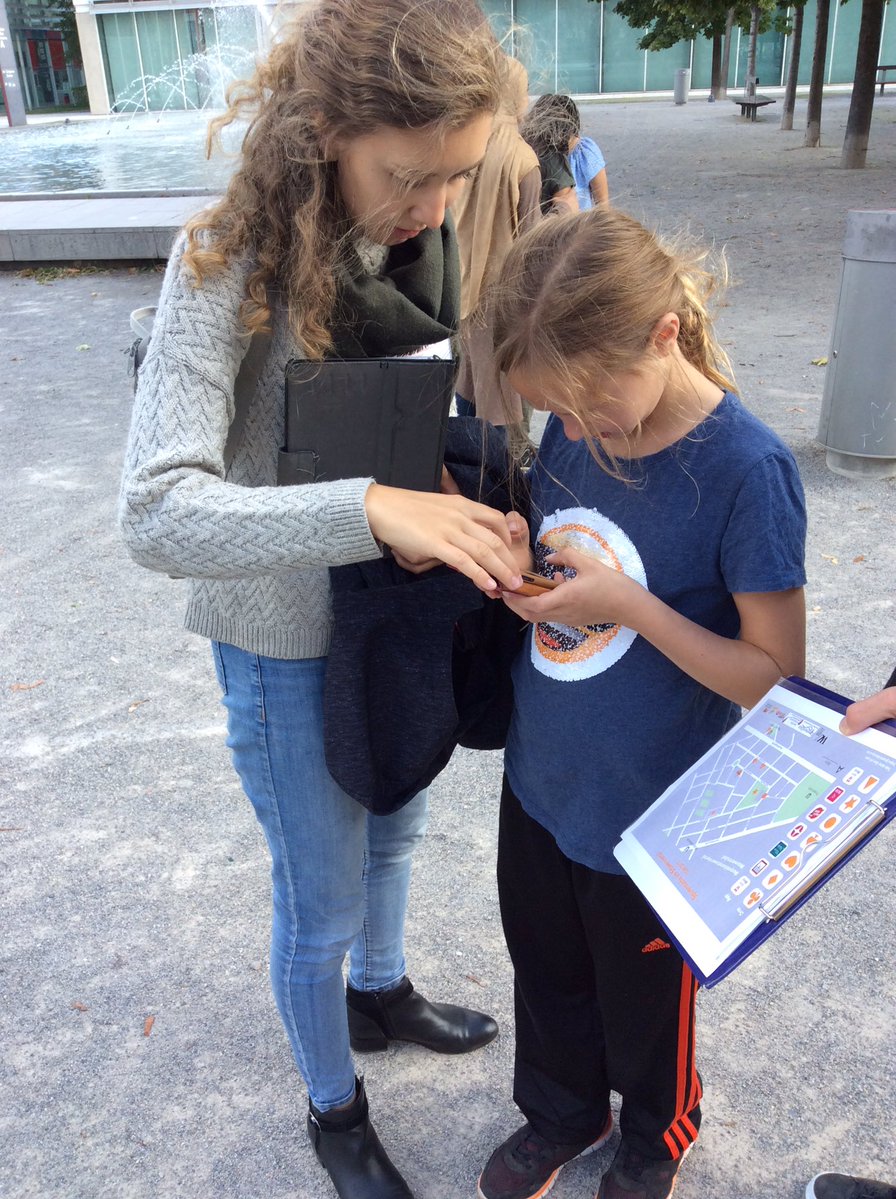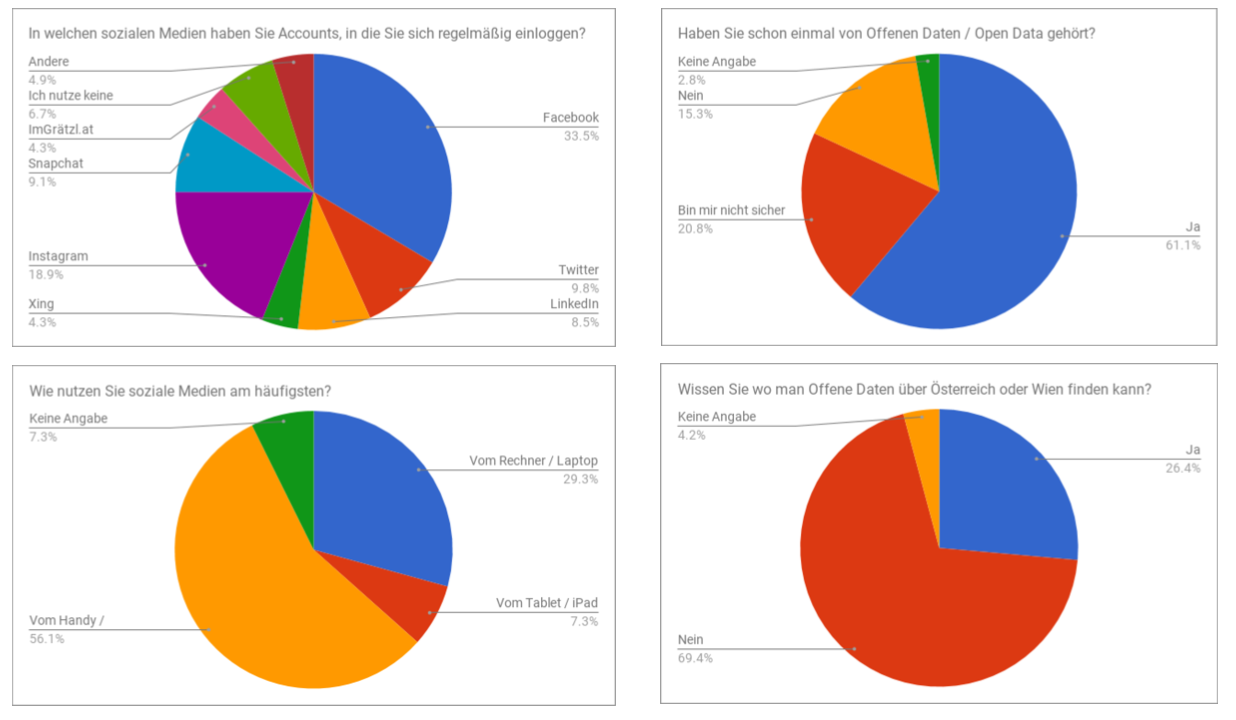World Open Data Day is a global event that has the goal to promote the use of open data world-wide and develop new ideas on improving life quality and empowering local communities through the use of open data. In practice, this is the day, when many people get together to exchange their experience, experiment, have fun and develop practical applications and visualisations with open data.
Vienna University of Economics and Business in collaboration with the Linked Data Lab, TU Vienna, hosted a workshop-hackathon targeted at students, who were encouraged to develop and share their open data ideas. It was one in the Open Data Day event series organised in Vienna on March 3rd.
The focus of the workshop was on the Open Data in Austria represented by the Austria’s Open Data portals: data.gv.at and opendataportal.at. Students together with the university researchers shared their ideas, proposed innovative solutions and voted for the most exciting and promising projects to work on: fake news verification with open data, playlist suggestion to work on the open datasets, putting the local data on the map, etc.
In less than 5 hours the participants exercised in creativity, their programming and design skills and managed to already present the first prototypes of their ideas:
1. Open Data Buildings Map Visualisation
One of the student teams focused on a use case to visualise and search for „local data around you“ on a map. They implemented an open data visualisation in the Jupyter Notebook environment. The work was subdivided into aggregation and conversion of the relevant data sources, for instance, historical buildings and their addresses from the Vienna history wiki (Thanks to Bernhard Krabina from KDZ for the help!) another part of the team looked into the visualisation libraries for Python. The final Python script loads the building coordinates from a CSV file, fixes the formatting issues and marks the locations on the OpenStreetMap using folium library.
Here is how the Open Data Buildings Map of Vienna looks like:
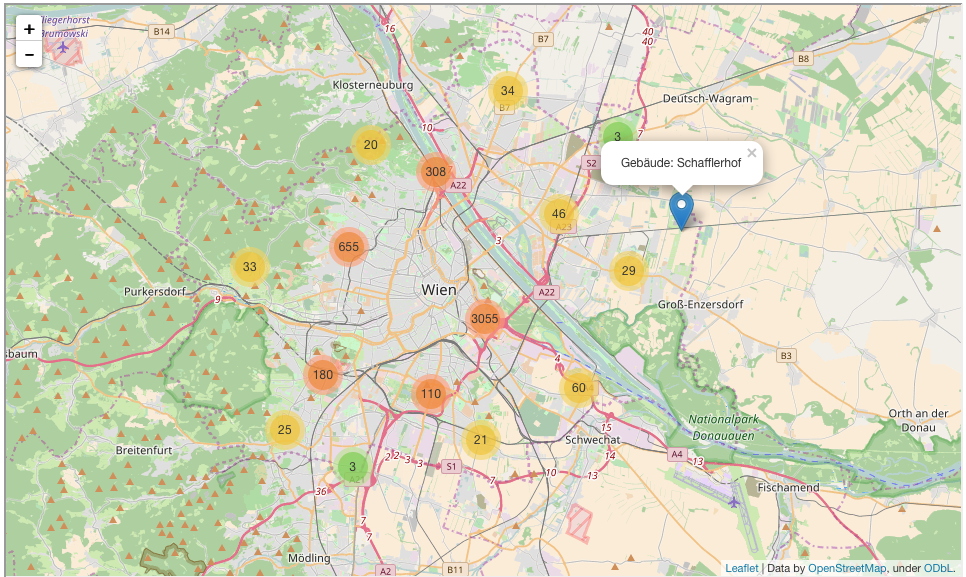
The interactive version of this map visualisation along with the source code for its implementation is available online.
2. News Verification Browser Extension
Another favourite open-data-in-use idea was the fake news verification application, the topic which is in high demand everywhere in the world right now. The students designed a mock-up sketch of a Chrome browser extension that will provide the means to crowd-source online news annotations and also contrast the figures provided in the news articles with the analogous figures available from the open data sources. It is indeed a highly ambitious and relevant project idea that contains several research questions on how to enable the correct alignment between the news text and tabular data.
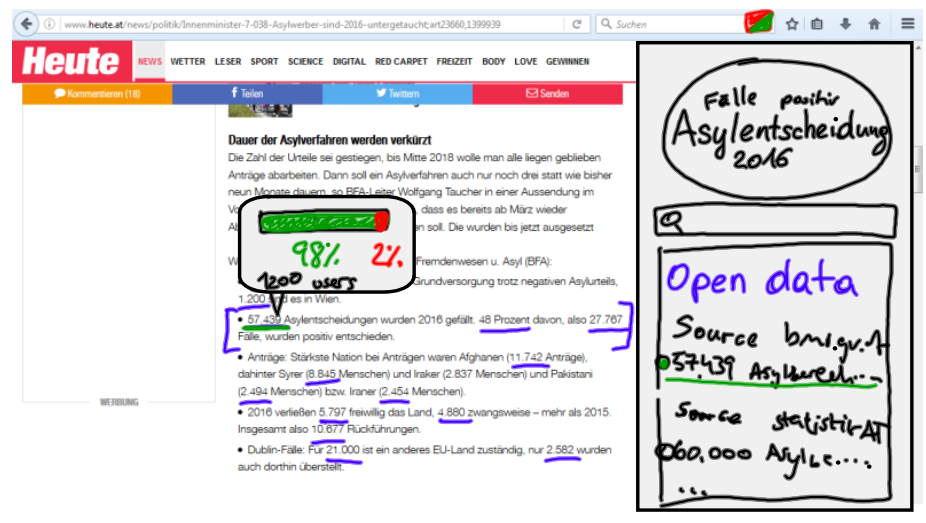
3. Open Data Fact Quiz Generator
The third team further developed the idea of adding the gamification element to the process of exploring and enriching existing open datasets. They took up a challenge of implementing the first prototype of the game with a purpose that would generate quiz questions from the open data tables to enable and bootstrap their annotation. The users would play the game by interacting with the datasets to test and expand their knowledge, and, at the same time, contribute to the community by verifying and improving the quality of open data.
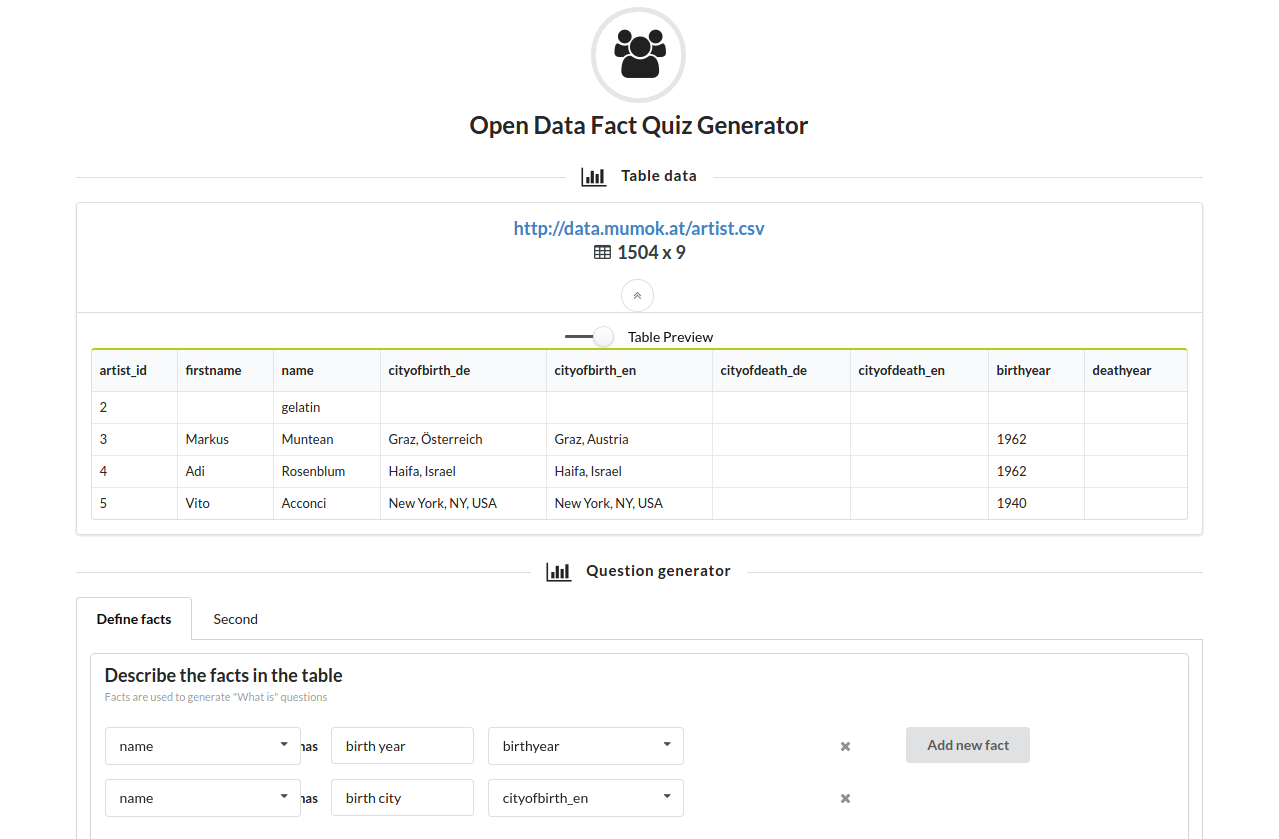
Big thanks to the organisers and participants of the workshop for the great event!
More info about the Open Data Day ’17 in Vienna:
1. opendataday.org
2. open.wien.gv.at/site/open-data-day-2017-veranstaltungen-in-wien
3. digitalcity.wien/offene-daten-begreifen-open-data-day-2017

